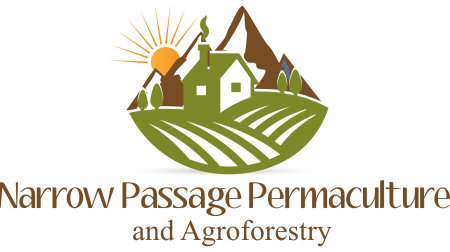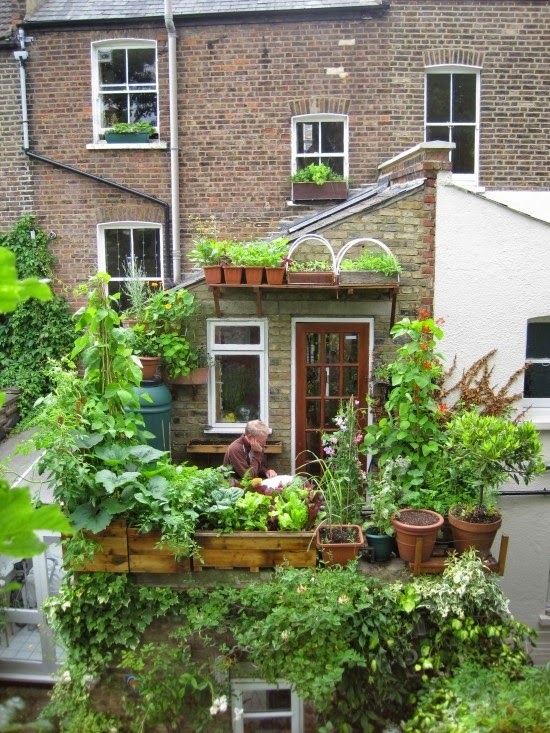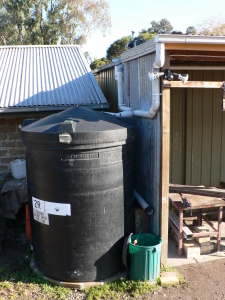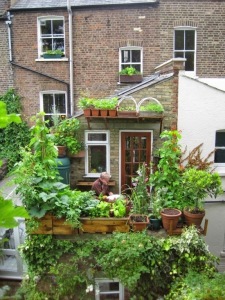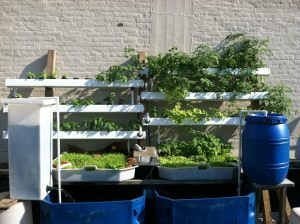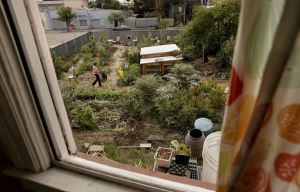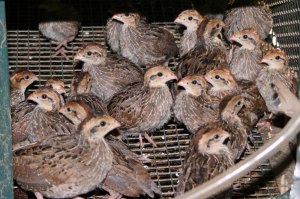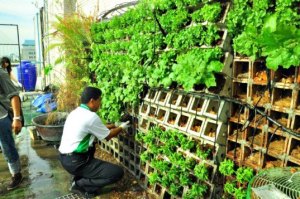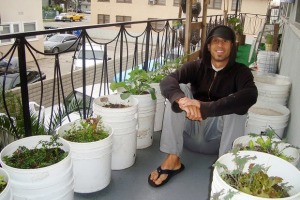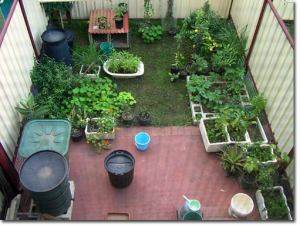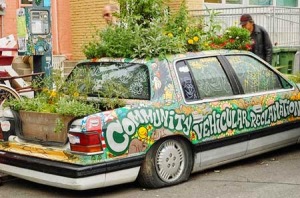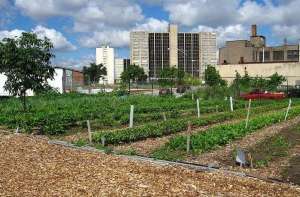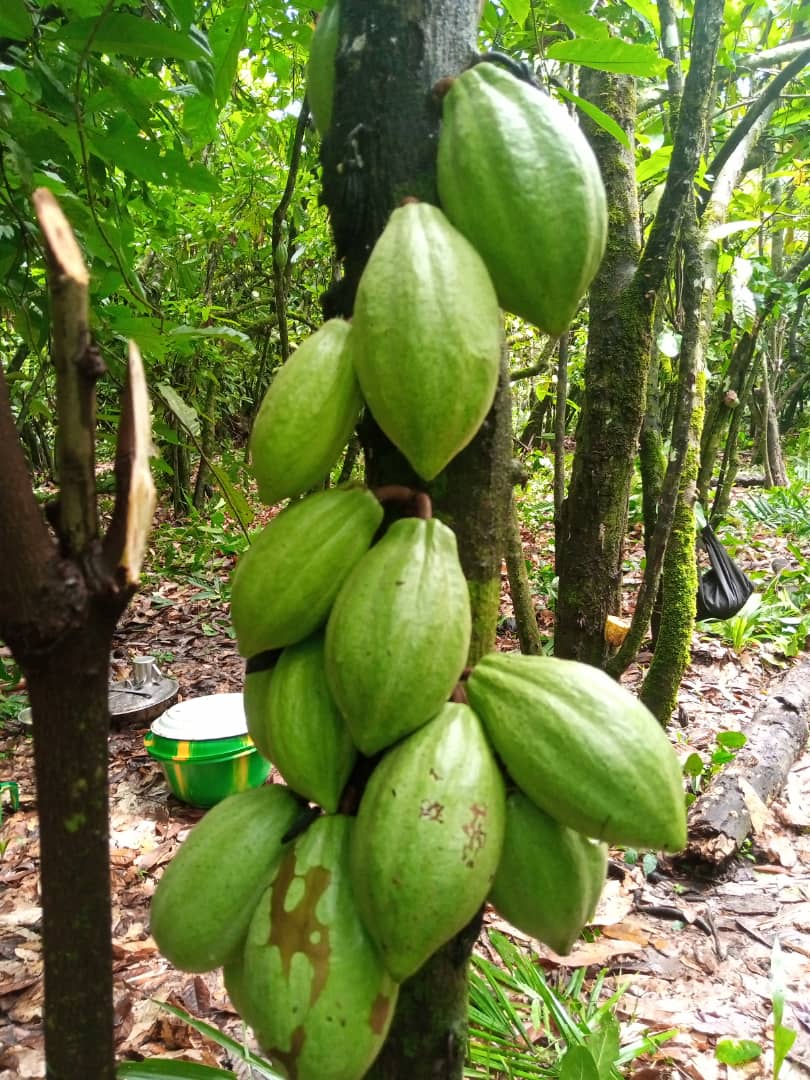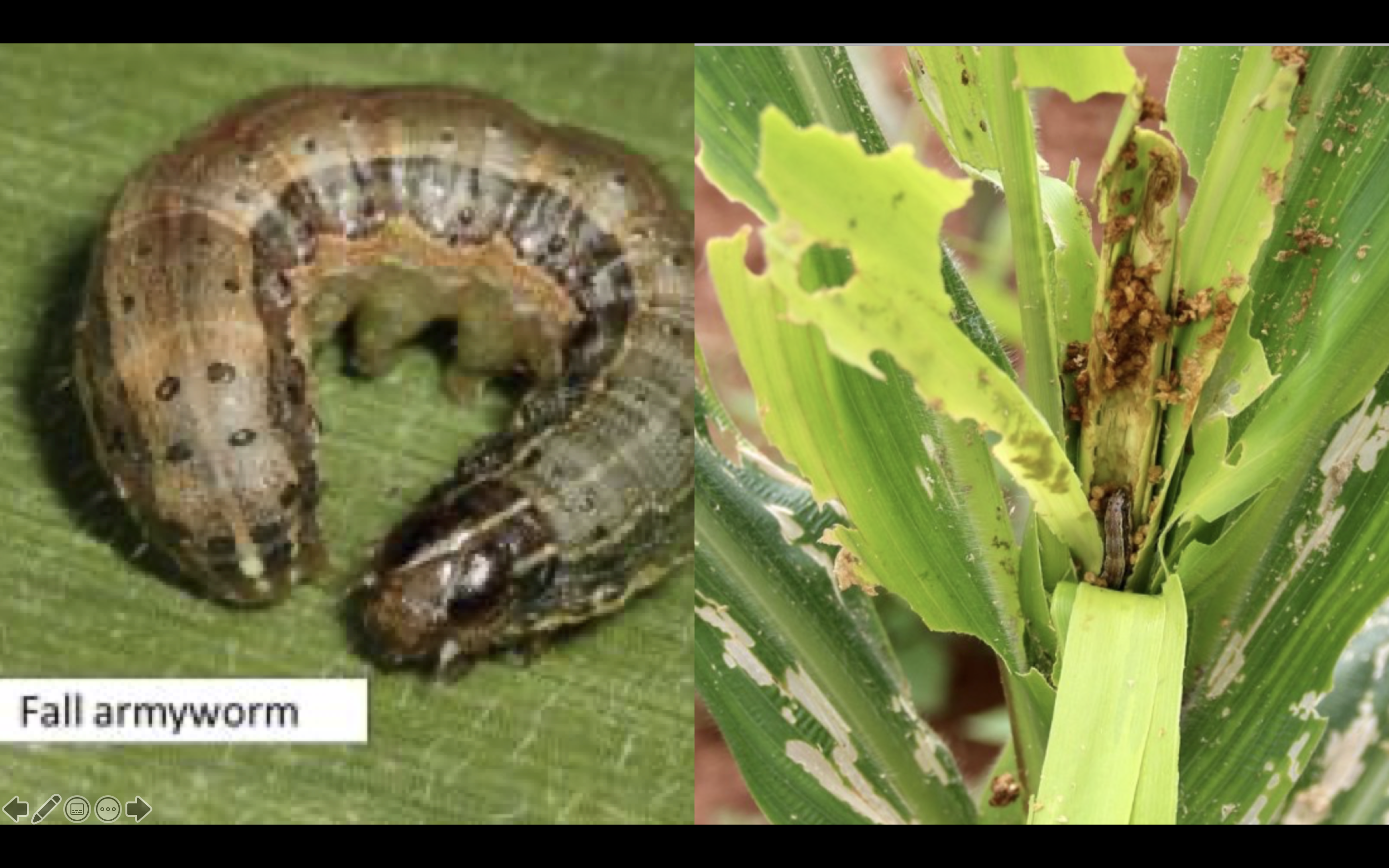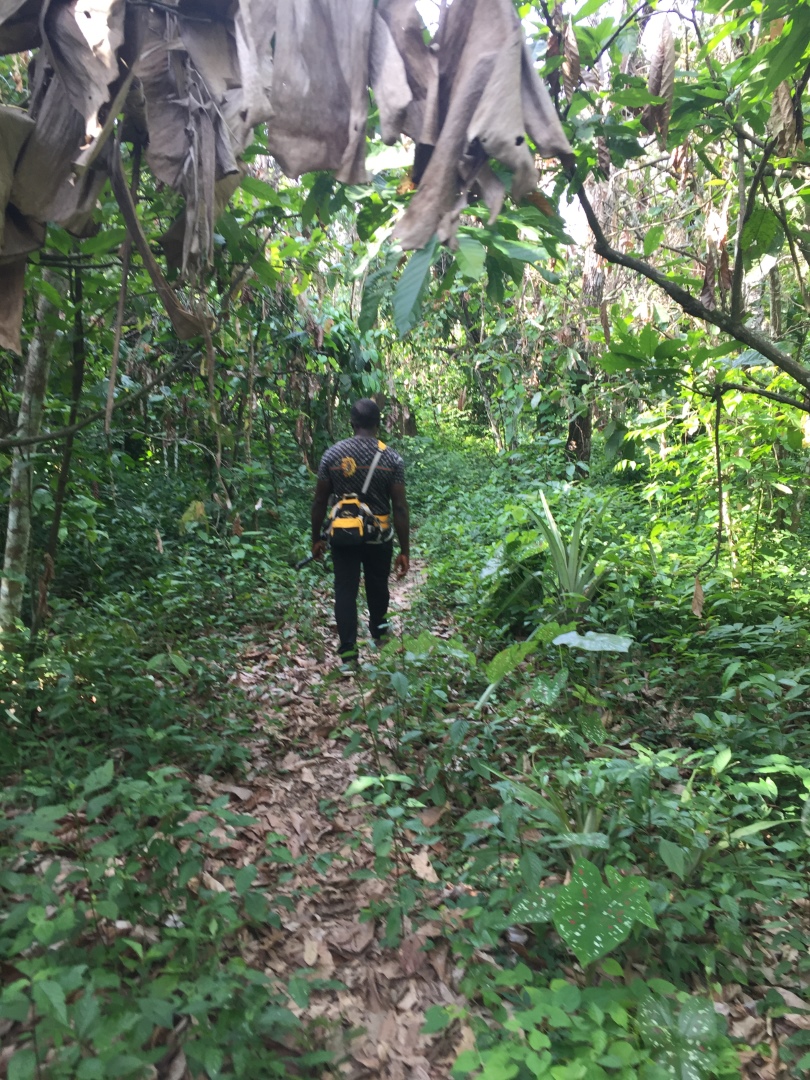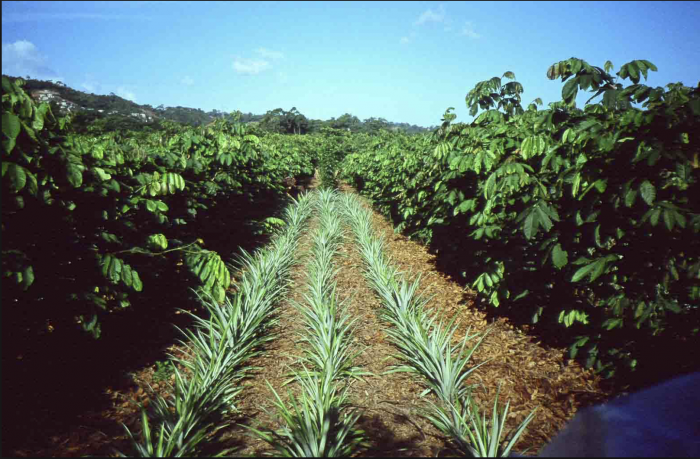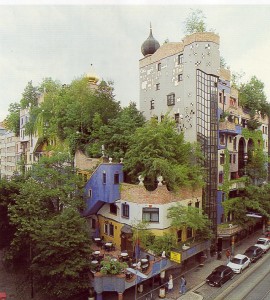
In September 2014 I had the privilege to speak to a wonderful community group in the inner city of Washington DC regarding “Urban Permaculture for Food Security”. Permaculture as a design science is applicable no matter the terrain or climate . By using natural patterns we can take advantage of any environment to create an abundant return. Some principals that are applied in a an Urban or small space such as an apartment , small lot or condo are:
The Importance of water harvesting Stock tanks and rain barrels can be utilized in a manner that most water needs can be provided. Roof water catchment can be considerable. In some instances, gray water can be recycled to use as water for plants.
Intensive planting methods many diverse plants and trees planted into a space that would seem too small gets the job done. Plants protect and nurture one another. Trees are pruned aggressively to a height not above arms reach so that birds are too afraid to land in them to eat the fruit. Obviously, it makes harvesting easier as well! A diversity of plants, fruit and nut trees, berries and vegetables can be planted intensively making the work easier and the yield per square foot greater than row crop farms. Dozens of varieties can be planted providing hundreds of pounds of fruit, nuts and vegetables each year. Plants are planted in a deliberate manner, such as varieties of the same fruit that allow for succesion harvesting, meaning one variety produces for a number of weeks, then another takes up and so on, extending the growing season for any one produce.
Creative use of space and “guerrilla gardening” Roof top planters, window boxes, vertical planting, such as trellis’ plants, hanging baskets and PVC planters, can be utilized to provide space where there was no space. Guerrilla gardening involves the use of unused public spaces such as vacant lots, the parking strip betweeen sidewalk and road, corners of parks in disrepair etc. Types of plants are planted that don’t necessarily attract attention while growing, producing a covert yield when ready.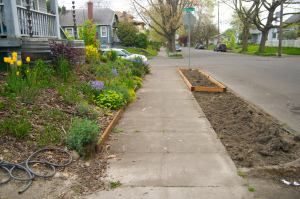
Aquaculture, Aquaponics, and small livestock can be utilized to provide an abundant source of nutrient rich plants and fish. For Carnivores, many urban areas restrict livestock but poultry such as Quail and small livestock like rabbits can be grown with little complaint from the neighbors as they are quiet and have little odor to be concerned with. Manure is a byproduct that is used to fertilize the plantings.
Utilize the advantages Urban and small spaces have over larger acreage. By paying attention to the solar aspect of the area being planted, many urban landscapes have longer growing seasons and less harsh weather shifts due to the moderation of climate resulting from the thermal mass of buildings and roads.
Once established, the Urban Permaculture and small space food production lots of an urban property or neighborhood can provide a pleasant shaded space for community use as well as organic, nutrient rich food to provide health to the community with low inputs and maintenance.
